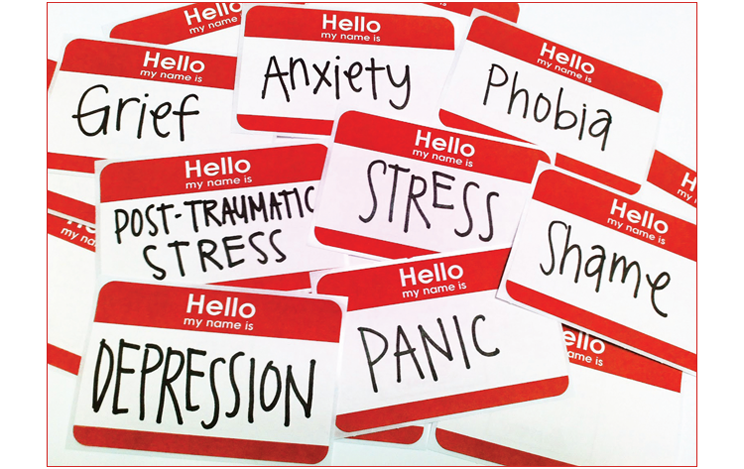Test your knowledge of warning signs and symptoms, plus how to address them
THERE’S NO DOUBT that there is a stigma placed on mental health issues in the U.S., so much so that many do not want to even discuss the topic. However, mental health concerns are much more common than people believe.
It is calculated that approximately 54 million Americans deal with some type of mental illness every year and that one in five will cope with a mental health issue at some time in their lives, if not repeatedly. Such statistics make it astoundingly clear that mental health should be in our conversations, because those who have such health issues are our parents, our spouses, and our children.
Recognizing mental illness is the first step in reaching out for the proper help for our loved ones. Take our quiz to test the signs and symptoms of mental health, and to learn how to best deal with them.
1. True or False? With proper care and treatment, many people can cope with or recover from a mental illness or emotional disorder.
2. How many classified forms of mental illness are there?
a) Around 25
b) Approximately 50
c) Under 100
d) Over 200
3. Mental illness is defined as a disease that causes mild to severe disturbances in _______ and/or ________, making it hard or impossible to deal with life’s normal demands and routines.
a) thoughts; behaviors
b) health; well-being
c) feelings; emotions
d) processes; reality
4. Which of the following is a sign of developing mental illness?
a) Personality changes
b) Changes in mood
c) Social withdrawal
d) Changes in personal habits
e) All of the Above
5. Which of the following can cause mental illness issues?
a) Excessive environmental stressors, both from a single situation or a series of events
b) Genetic factors
c) Biochemical imbalances
d) Any Combination of the Above
6. Which of the following are emotional symptoms that may indicate a loved one is suffering from a mental health issue?
a) Prolonged feelings of sadness or irritability
b) Extreme emotional happiness, sadness, anger, etc.
c) Excessive worries, fears, and anxieties
d) Strange and/or suicidal thoughts
e) All of the Above
7. True or False? Mental health illnesses can have physical symptoms as well as emotional or cognitive symptoms.
8. Which of the following are physical or social symptoms that a loved one might need to see a mental health professional?
a) Extreme changes in sleeping or eating behaviors
b) Substance abuse
c) Numerous unexplained physical ailments
d) Withdrawing from social activities
e) All of the Above
9. What should you do if you suspect a loved one is suffering from a mental health issue?
a) Wait and see
b) Speak with other family members about it
c) Get the individual to a mental health professional
d) Help them to “snap out of it”
e) Focus on positive activities
10. What other steps should you take if you have a loved one with a mental health concern?
a) Establish a support network of family, friends, and support groups
b) Accept and learn about your loved one’s mental health issue
c) Seek counseling for yourself and other family members
d) Find ways to make time for yourself and other family members
e) All of the Above
ANSWERS
1. True. A mental health diagnosis is not a sentence to a lifetime of concerns and problems, but proper and continuous care and treatment are a necessity.
2. D) Over 200. There are many forms of mental illness, and treatment needs to be geared towards the individual.
3. A) Thoughts; behaviors. Mental illness is defined as a disease that causes mild to severe disturbances in thoughts and/or behaviors, making it difficult to deal with life’s normal concerns and routines.
4. E) All of the Above. There are many signs of mental illness, but extreme changes in any area of one’s life is a red flag.
5. D) Any Combination of the Above. The root causes of mental illnesses are multiple, varied, and complex, and both the diagnosis of a cause and the application of a treatment for a mental health concern take time and effort.
6. E) All of the Above. There are many emotional symptoms of mental illness, but they are usually extreme, prolonged and/or without cause.
7. True. Physical symptoms such as unexplained aches and pains, headaches, stomach aches, etc. can all accompany mental illness.
8. E) All of the Above.
9. C) Seek the help of a mental health professional. Just as with another type of ailment, the issue will not go away or get better without professional help.
10. E) All of the Above.
CREDIT
article by ERIKA ALDRICH
Resources: Information provided by Mental Health America and the National Alliance on Mental Illness.
